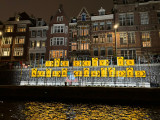University of Amsterdam (UvA)

We provide academic education for tomorrow’s leaders and innovators, carry out pioneering research and use the results to develop socially relevant applications.
We provide research-intensive education for a broad group of students – irrespective of their origin, background, or beliefs, preparing them for the global job market.
We provide our academic staff with the space and facilities required to carry out innovative and interdisciplinary research.
We foster an innovative environment and have a large impact on society.
Activity
- 17Updates
- 0Thumbs up
- 10Comments
Suzanne Hansen,
Head of Partnerships
at University of Amsterdam (UvA),
posted
Taghi Ramezan Zadeh,
Assistant professor
at University of Amsterdam (UvA),
posted
Finn Mund,
International Relations
at University of Amsterdam (UvA),
posted
Maartje Luinenburg,
Digital Marketing & Communication
at University of Amsterdam (UvA),
posted
Raphaela Lark,
Researching the intersection between climate adaptation and social inequality
at University of Amsterdam (UvA),
posted
Frank Hagendoorn,
Student
at University of Amsterdam (UvA),
posted
Daan van den Berg,
Teacher & researcher on optimization
at University of Amsterdam (UvA),
posted
Ludovica Viva,
Project Manager
at University of Amsterdam (UvA),
posted



